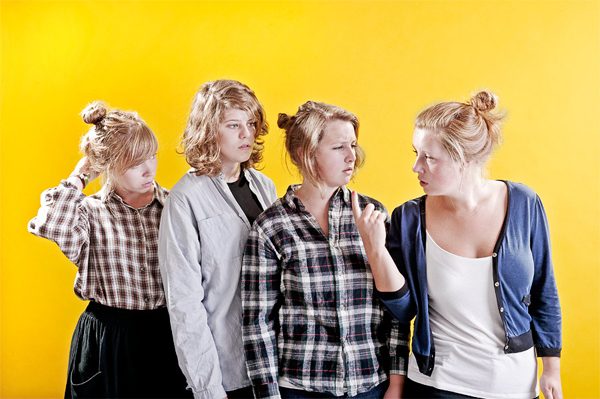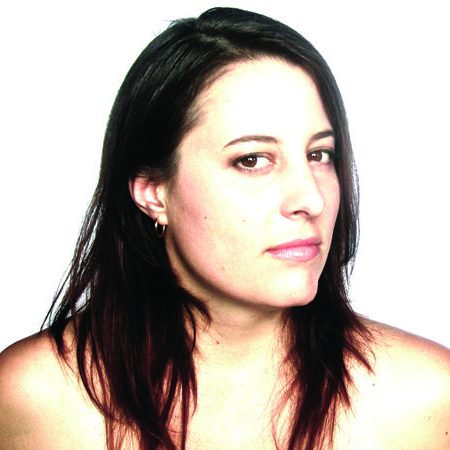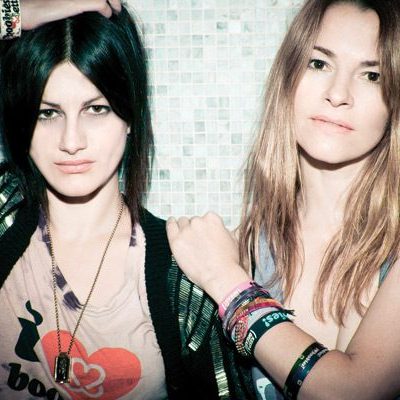
We sat down with our favourite Norwegians to talk about the inspiration behind their sweet melodies.
In the mood for something sweet? How about some sugary tunes from cute Norweigian girls? Get to know Razika, one of Norway’s favourite up-and-coming bands. Formed by a group of four friends, the girls have recently launched their new album, Program 91, and are ready to sing you to happiness with their upbeat tunes about love, life and what it means to be young.
How do you define your sound?
Our sound is a mixture of many genres. Mainly we say that we play pop/ska, but you can sense the new wave, the reggae, the punk and the so-called indie sound as well. Our lyrics are quite sad, of course about love and also about being too young – born in ’91, therefore Program 91 – but our melodies are cheerful. What we sing makes you want to cry, but what we play makes you want to dance.
Speaking of Program 91, you’re a young group, and your songs seem to focus on having fun and being upbeat. Is it easier to be happy when you’re younger?
For the average 20-year-old girl in the West, I think life is easier when you’re young, but that doesn’t mean you’re not allowed to be sad about the relationship that didn’t work out or things like that. When we’re older responsibility comes along, and we’ll probably focus on the bigger problems.
We’ll probably be like our parents – working and telling our children how great life was for us when we were young, playing in a band and all. Maybe we’ll push our children to start a band…buy them instruments when they’re three and so on.
What do people assume about the band when they hear you’re from Norway?
They assume we’re an all-guy band that play some kind of metal. But Norway actually has so much more to offer when it comes to music. Especially Bergen, where we come from. It’s the biggest music scene. In Norway “the Bergen wave” is actually an expression, because there are so many talented bands from Bergen that have suddenly shown up.
We’re like a big family, every band supporting each other. Why compete when we can cooperate?
What’s great about being in a band of four women?
It’s great that we get more attention, but sometimes it’s the wrong kind of attention. Like, “How is it to be a woman in the music business?” It’s just fine, thank you. In the very beginning, we could literally play on the fact that we were four cute 15 year-old-girls, but for four years now we have worked really hard to get better.
People tend to be a little biased in terms of gender. When they come to our show they have already set their mind to what they think they’re going to hear. But this is where the great part comes – when we start the show by blowing their heads off with cool pop/ska music!
We need more girls in the music business, so we hope that girls can get inspiration from us. Don’t just sit in your room, get out there.
Has the band ever been pressured to turn up the sex appeal because you’re a group of women?
No, we haven’t. Because people know we’re not that kind of band, and we’re not that kind of girls. If someone had asked us to do that, we would kindly ask them to fuck off.
What does the band do together for fun?
We practice as often as we can. Maybe three to four times a week. And when we’re not practising we’re out travelling and playing. Sometimes it can get to be too much if we’re together in our spare time.
But we do party and go out to town together! That’s always fun. And when we’re out travelling and playing, we use our free time to check out the new city.
Sometimes we go to museums, sometimes we go shopping. We’ve all known each other since we were six, so we’re all best friends. Actually watching TV in our hotel room is our favourite hobby.
Do you write together, or individually?
It’s mainly Marie Amdam, the vocalist, who writes the songs. But also Maria Råkil, the guitarist. The inspiration is from what we experience. The life of a 20 year-old-girl falling in and out of love.
We have songs both in Norwegian and English, which people don’t seem to get why. But we don’t see why they bother.
Sometimes, most of the time, it’s natural to write in our own language, but other times you just think of the lyrics in English. Almost every band in Norway sings in English, but no one ever comments that, so why care if we sing in both Norwegian and English?



